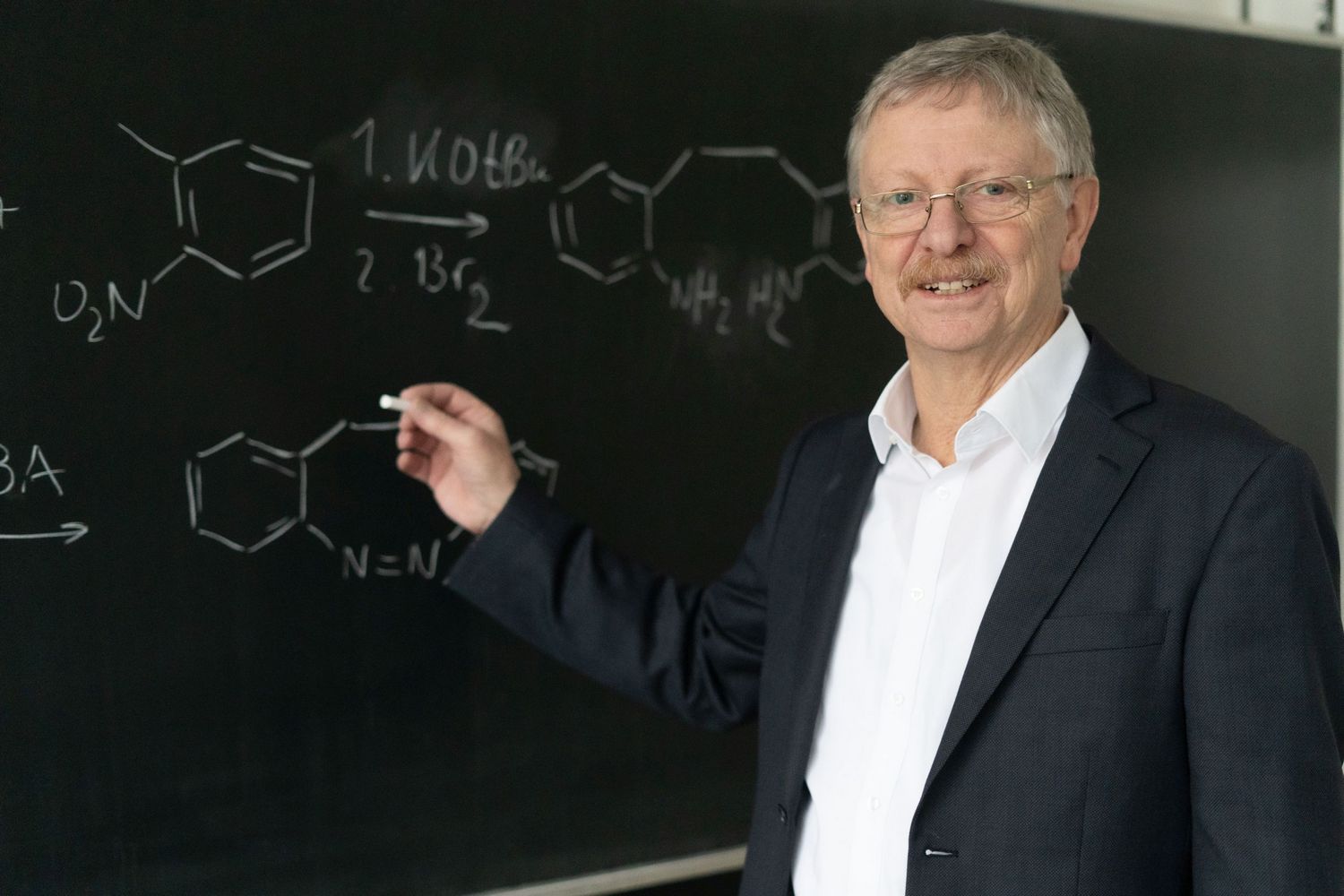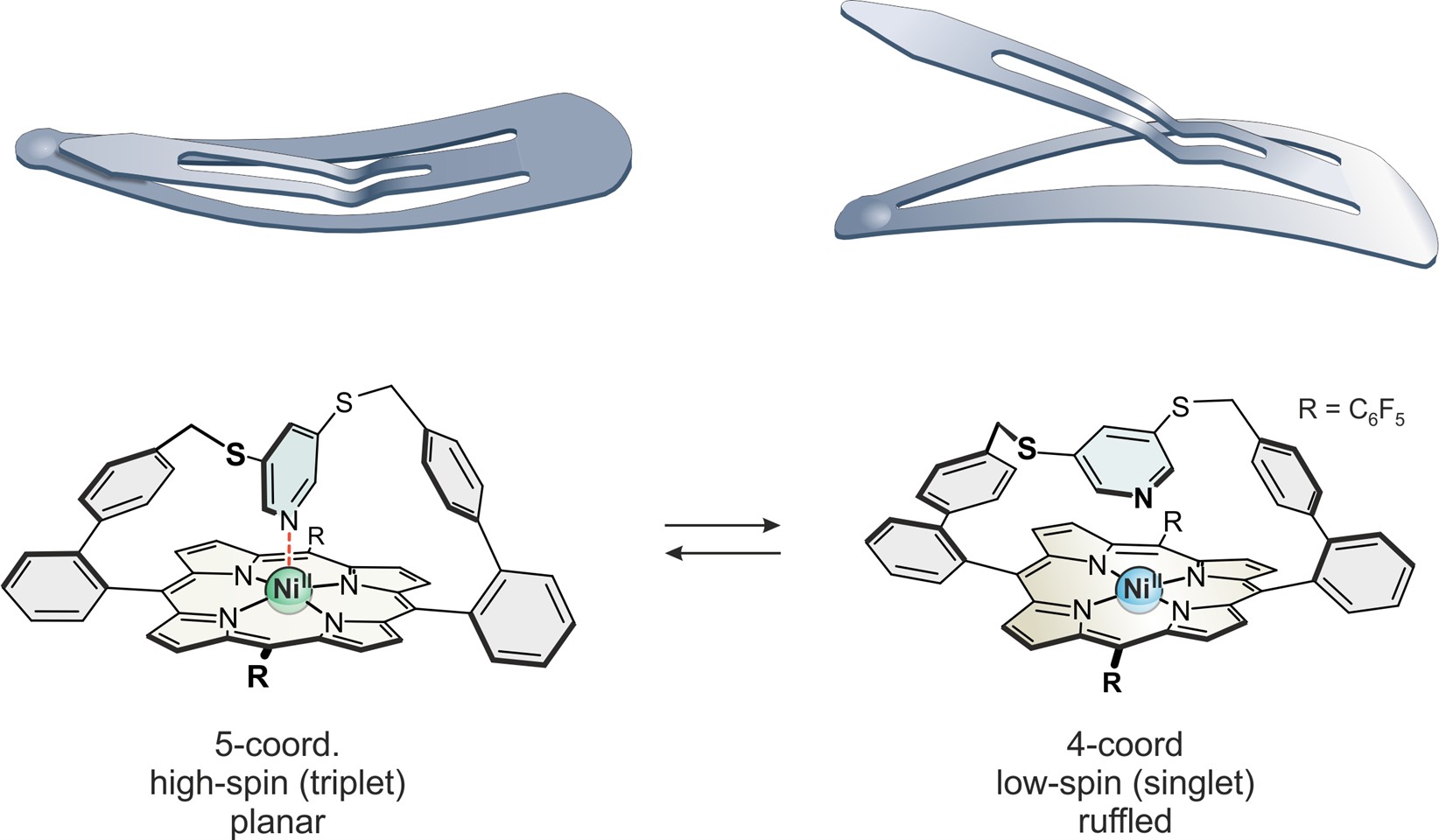
23 September 2024, 2 p.m.
Abstract
Spintronics or spin electronics in contrast to conventional electronics uses the spin of electrons for sensing, information storage, transport, and processing. Potential advantages are nonvolatility, increased data processing speed, decreased electric power consumption, and higher integration densities compared to conventional semiconductor devices. Molecular spintronics aims for the ultimate step towards miniaturization of spintronics by striving to actively control the spin states of individual molecules.
The spin states of our “hairclip molecules” are stable for at least several days at low temperatures on silver surfaces. This is achieved by a design trick that resembles the fundamental electronic circuits in computers, the so-called flip-flops. Bistability or switching (between 0 and 1) is realized by looping the output signal back to the input. The new hairclip molecules have three properties that are coupled with each other in such a feedback loop: their shape (planar or flat), the axial coordination (yes or no), and the spin state (high-spin or low-spin). Thus, the molecules are locked either in one or the other state. Upon sublimation and deposition on a silver surface, the switches self-assemble into highly ordered arrays. Each molecule in such an array can be separately addressed with a scanning tunneling microscope and switched between the states by applying a positive or negative voltage.
The new spin switches realize in just one molecule what takes several components (transistors and resistors) in conventional electronics and thus are promising candidates for molecular spintronics.




